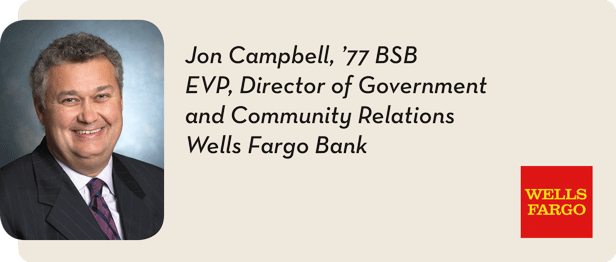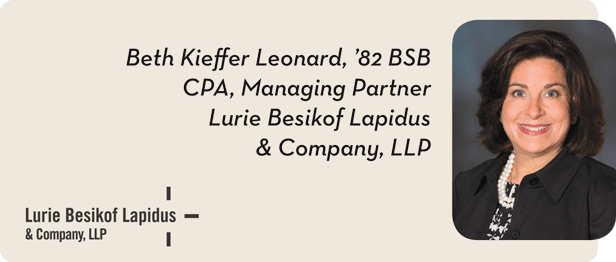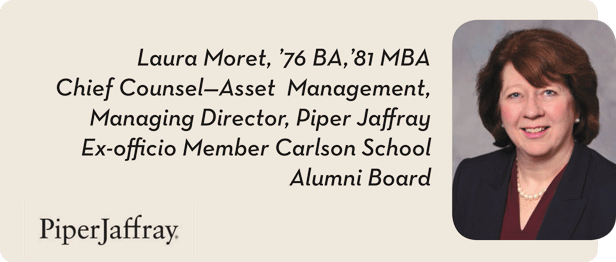
The Financial World
Tuesday, April 1, 2014
By Kevin Moe
The weakening of the world economy is a well-told story—it even revived an old saying into a new catch-phrase, “Too big to fail.” But snappy saying or no, things did collapse. “After the dust settled, we were left with a much more concentrated banking system,” says Minnesota Chair in Banking and Finance Andrew Winton. “Several large banks and investment banks all but failed and were taken over by other large banks.” Bank of America acquired Countrywide and Merrill Lynch. J.P. Morgan Chase acquired Bear Stearns and Washington Mutual. Wells Fargo acquired Wachovia.
“This is ironic, since many believe that a key cause of the crisis was the ‘too big to fail’ problem, in which investors believed the U.S. government would bail out large financial institutions rather than let them fail and cause massive damage to the financial system. Making the big banks even bigger increases the potential impact of their failure,” he says.
To reduce the likelihood of such bailouts, the Dodd-Frank Wall Street Reform and Consumer Protection Act were signed into law in 2010. Now, large banks and other “systemically important” financial institutions need plans for how to carefully wind themselves down in the event of failure, so bailouts are not needed. And the act’s Volcker Rule forbids banks with insured deposits from engaging in proprietary trading—taking risks in the securities markets for their own account.
Also, banks in general have to hold more equity capital, which acts as a “shock absorber” in the sense that bank losses have to wipe out equity before depositors and other debt holders are affected. More equity reduces the likelihood that the bank will run through its equity capital and fail, Winton says.
“In the past, banks have found ways around regulations, and so many of these rules, especially the Volcker Rule, have been made extremely detailed to try to prevent such gaming behavior,” he says. “The downside is that they are cumbersome, difficult to understand, and likely to decrease banks’ flexibility in ways that are harmful as well as in ways that are good.”
Winton adds that higher capital requirements and more extensive rules have reduced the profitability of banks. “This may not be a completely bad thing,” he says. “Many researchers and policy makers feel that the financial sector had over-expanded up until 2007 and that this was a misallocation of resources from the productive economy to a sector that, in some sense, acts as ‘plumbing,’ getting funds from those who have them to those who need them.”
As Dodd-Frank gives a major role to government oversight, it has received much criticism for its broad reach and Keynesian implications. Keynesians typically believe that during a recession, government should lower interest rates and spend to lessen its length and severity. “Personally, I feel government has an important role to play to minimize economic downturns,” says Professor Robert Goldstein, the C. Arthur Williams, Jr./Minnesota Insurance Industry Chair. “However, I do not believe that monetary policy should play the dominant role. Rather, I feel the Fed should have only a single mandate—maintaining low and steady inflation.”
Goldstein says fiscal policy should play the dominant role in reviving the economy. “I feel that labor income should be subsidized during recessions,” he says. “That is, government should effectively pay a portion of wages, making it cheaper for firms to keep their employees rather than firing them—in turn reducing adjustment costs associated with changes in employment.”
The economic justifications for such a policy are as follows: when a firm fires an employee, not only does that action reduce his or her demand for goods, but so do all other employees, because they are all concerned that they may be the next to be fired. “Employees are extremely adverse to the risk of losing their income, and this will impact their spending and savings decisions,” Goldstein says. “This produces a ‘negative externality’ on the entire economy that the firm does not account for when they fire someone.”
On the other hand, using monetary policy—manipulating interest rates—will impact many well-functioning markets which may cause unintended consequences. “The labor market is not a single market, but rather 100 million different markets between employer and employee,” Goldstein says. “It is fraught with asymmetric information, huge adjustment costs, loss of firm-specific skills, jealousy, externalities—everything that justifies government intervention.”
Stakeholders Now Have Higher Expectations for Companies
Although we are in the fifth year of economic recovery, Jon Campbell says it doesn’t really feel like that. “The recovery has been slow and uneven, with many people struggling to find jobs, build credit, pay for medical expenses, start businesses, or save for retirement,” he says.
And today, stakeholders have much higher expectations for public companies such as Wells Fargo. “We’re expected to do much more than generate shareholder return, serve our customers responsibly, and support our team members,” Campbell says. “We’re expected to help solve a wide variety of economic, social, and environmental challenges from decreasing economic and social divisions to addressing climate change.”
A big change over the past several years that has been mentioned elsewhere is the significant increase in regulation and regulatory oversight initiatives that have been put in place to create a safer and stronger financial services industry. “This heightened regulatory oversight has presented us with a complex set of challenges and opportunities,” Campbell says. “Increased regulations have substantially changed how most U.S. financial services companies conduct business. We’re in favor of good, clear, consistent regulation that creates standards, protections, and oversight, but we’ve seen regulations in all industries that have unintended consequences, such as increasing the cost of credit or slowing economic recovery.”
To alleviate these difficulties, Wells Fargo has greatly increased corporate-level project management to implement new requirements for significant firm-wide coordination and input, such as stress-testing, recovery, and resolution planning. “We have also significantly increased our risk management and compliance oversight resources in response to regulatory requirements,” Campbell says. “For example, we formed a Regulatory Change Management Office to facilitate, coordinate, and provide overall direction and oversight for regulatory reform initiatives from rulemaking through implementation.
“There is so much change and opportunity happening. For all of us in the public and private sector, we’ll need to continually work on balancing the changes in our industries with evolving stakeholder expectations and the everyday challenges facing our customers and communities.”
Companies Remaining Cautious Amid Continued Uncertainty
“Many small, medium, and large companies across the nation have successfully emerged strong and healthy from the recent recession—some even stronger than they were prior to downturn,” says Andrew Cecere. “Over the past few years, companies have strengthened their balance sheets, built up their cash positions, enhanced their productivity by carefully managing expenses, and grown their earnings.”
However, even though domestic companies are on solid footing, they remain cautious with continuing uncertainty surrounding the economy in general, legislative and regulatory change, health care and tax policies, and the impact from European and emerging market economies.
“This uncertainty was evident throughout 2013, particularly for the banking industry, as loan demand remained subdued, line utilization dropped to historically low levels, and companies continued to express their hesitation to begin to expand and invest,” Cecere says. “The outlook, however, is becoming increasingly more positive, evidenced by companies’ willingness to request and pay for open lines of credit with their lenders and, importantly, discuss opportunities for investing in the near future.”
Government Policies and Restrictive Credit are Limiting Growth
Being a real estate developer dealing with both commercial and land development, Chip Glaser has been seeing a rebound in various markets. However, this rebound has been tepid, as both consumers and builders are proceeding cautiously.
“Overall, consumer confidence is below levels seen in past economic expansions,” he says. “This economic instability is based in political deadlock, mistrust of government, and concern over public fiscal health. Stability in Washington will enhance growth.” He adds that the current deficit spending is unsustainable, and that one of the largest measures which needs to occur is meaningful entitlement reform. “Overall, our elected officials need to demonstrate more ethical conduct and put the good of the people above their personal political aspirations,” he says.
Glaser adds that another large barrier to broad economic expansion is access to capital—both for developers and for consumer credit and mortgages. “While rates are at historically low levels, credit constraints make it difficult for the masses to avail themselves of current rates.” He said Fed policies have created a disincentive to lend, the Dodd-Frank legislation has mandated overly restrictive provisions banks must follow, and the current flat yield curve is hurting margins, which means banks have no margin for error in lending.
Successful Businesses Found Ways to Grow
Beth Kieffer Leonard says the road back from 2008 has been paved with perseverance, dedication, and hard work in general as the initial response to cut jobs and expenses was followed up with a fierce determination to figure out how to grow through the recession. “The most successful businesses found a way to add business lines, buy complementary businesses, and expand into foreign markets,” she says. “They viewed this period as an opportunity to streamline processes and systems, and invest in the talent they needed to take them to the next level.”
She adds that as the economy returns to a growth environment, the lessons learned during the recession are the drivers for planning for 2014 and beyond.
Impact of Regulations Still Being Debated
Laura Moret notes that a significant change in the financial landscape since 2008 has been increased regulation, especially in the United States. “I believe the Dodd Frank Wall Street Reform and Consumer Protection Act or ‘Dodd Frank Act,’ which was adopted in 2010, is the most significant change to financial legislation since the Great Depression,” she says.
Moret says the impact of regulations established by Dodd Frank on financial service companies and the economy continues to be debated. However, in 2013, the economy did improve in this increased regulatory environment. “There was a strong stock market, with the biggest percentage gain since 1997,” she says. “The Standard and Poor’s 500 stock index rose 29.6 percent, with investor 401(K) and IRA equity accounts reaping the benefits.”
Additionally, the strong stock market resulted in 235 initial public offerings raising more than $74 billion for companies, as reported by the Securities Industry and Financial Markets Association (SIFMA) in its 2013 Year in Review. Also, SIFMA reported that 844 follow-on offerings raised another $188 billion. Moret says the fixed income market had a more challenging 2013, with the mutual fund analysis service Lipper reporting that the largest bond fund total returns ranged from a two percent decline to a two percent return.
Moret believes that financial service companies expect the increased regulatory environment will continue to require additional resources in the future. “I also think most economists appear to be generally optimistic for the near future of the U.S. and global economy,” she says.
Recession Demonstrated Global Connectivity
Barbara Mowry says the recent financial crisis really showed us how globally connected we are, as bank failures in one country had a large impact on banks in other countries more than ever before. Businesses have had to adapt to more global supply chains,better risk management, more ambiguity, and more and more automation to increase productivity and expand markets.
Mowry did notice that small businesses and large businesses were not equally affected. “Small business in general was harder hit,” she says. “That has given rise to new efforts to spur business formation, such as financing through crowd-funding, accelerators, incubators, and many efforts to help smaller and entrepreneurial ventures get started.”
Besides the increase in globalization, there is an increasing mismatch in skills versus the types of jobs available. “For example, manufacturing jobs are increasingly requiring more technical skills than ever before. Our education system and businesses will need to adapt to the new skills required,” she says.
Mowry says she expects the economy to continue to improve. However, it will not be a rapid improvement, as it takes longer to recover from both a deep recession and financial crisis at the same time—the last major one was the Great Depression. “I am optimistic that our country can continue to innovate, increase productivity in the economy, and adapt to the global and skill changes required, though as with all change, there will be some pain involved,” she says.
Quality and Price Trade-Offs are Disappearing
Labor economists tell us we are facing what they call an hourglass economy, says Chris Neugent. “This means there’s a growing number of households at both the top and the bottom of the income scale, but remarkably fewer in the middle,” he says. “This growing bifurcation of income in our society is deepening and is a huge challenge for us both economically and culturally. The average American household earns less today than it did at the end of the recession.”
It’s no news to anyone that families are being stretched more than ever before and the majority of households are living paycheck to paycheck. “Consumers are sticking to frugal shopping habits developed in the recession even as developed economies show signs of recovery, suggesting some behavior changes could be permanent,” Neugent says. “With household budgets under pressure since the financial crisis of 2008, millions of consumers have flocked to lower-priced goods and to discount and dollar stores. These consumers are still in the mindset of tightening their belts, and that’s not a change that is going to reverse quickly. At the same time, luxury products and luxury retailers have flourished. Companies that are caught in the middle have struggled.”
Neugent doesn’t see any indication that the growing divide in earning power in society will abate any time soon. “This trend will challenge our country’s ability to compete in a global economy,” he says. “I think that we can expect the business environment to continue to be extremely competitive and volatile, as consumers are showing a willingness to shift their loyalties more quickly than ever before. An increasing portion of the market is demanding more value as pocketbooks are stretched.”
In the past, it may have been possible for businesses to compete by assuming that consumers would be willing to make lots of trade-offs, such as accepting a slightly inferior product if offered at a low price. However, today’s consumer wants it all. “There are lots of very useful and popular websites which are offered for free. There’s seemingly no trade off between quality and price in that example,” Neugent says. “I think that type of reality is raising the bar for all of us. For MOM Brands, our mission to find better ways to make a better breakfast at a better price is directly focused at removing the trade-off between quality and price for breakfast cereal. I’m proud that our company has saved U.S. consumers over one billion dollars on cereal since 2008, and we expect to save them even more in the years to come.”
U.S. is a 'Growth Company'
Since the recession, John Penshorn notes that the economy has moved from a liquidity crisis to a worldwide reflation effort, with attendant monetary support from central banks in the U.S., Europe, Japan, and elsewhere. “The monetary policy moves have stabilized housing values, but they have had a more direct positive effect on the value of other assets, such as stocks and bonds,” he says.
The business community is seeking to balance the impetus for growth with its readings on the durability of the recovery. “The increases in costs and regulation pressure the natural resiliency of our economic system, resulting in cautious hiring and a more muted recovery,” he says. “The economy’s response after the U.S. Federal Reserve eventually withdraws its market support is still unknown.”
Penshorn also points out that corporate earnings have been strong—ironically—in part because large firms have been willing to forego growth, and the investments that support growth, rather than risk over-committing resources in an unclear environment. “In contrast, higher stock market valuations continue to support strong merger activity and there is ample capital for promising new startups,” he says.
The Fed’s clear “taper” strategy and its transparent communication are helping the market and the economy to ease away from the support this has provided. “An effectively executed taper—one that sustains capital availability while not promoting speculation, one that creates a smooth handoff from stimulus to a free-standing, self-supporting economy—would be a tremendously positive accomplishment,” he says. “This needs to occur in multiple national financial systems because our global economy increasingly interconnects. For example, unnecessary recession or inflation in Europe could impact U.S. markets and businesses, even for those who believe their work is entirely domestic.”
Penshorn says if the United States were a company, it would still be a growth company. “Do we have issues? Sure,” he says. “But we can’t lose sight of the fact that we have critical things in our favor—a democratically elected government overseeing a free enterprise system that spurs capital flows; entrepreneurship and innovation like no other; talented and motivated young people with better educations and more diverse experiences than one might have imagined two, three, or four decades ago; and a citizenry that is by and large interested in reasonable and appropriate levels of regulation that balance responsibilities to others along with the opportunities our country and economy offer.”
Expect Interest Rates to Grow
To Robert Senkler, the biggest challenges to come out of the 2008 recession have been slow economic job growth and artificially low interest rates precipitated by Fed actions. “These changes are putting significant financial pressure on insurance companies’ balance sheets in particular as it relates to variable annuities, long-term care, fixed annuities, and really, any long-tail liability where an interest assumption is important in the product pricing,” he says.
To counter these difficulties, Securian has been modestly changing investment allocation to increase investment income, although never going outside of its overall risk tolerance. This is important obviously, because less investment income means having less revenue and a slower job growth. “It has definitely slowed overall job creation at Securian,” Senkler says.
Senkler expects interest rates will be higher in the future regardless of the Fed and its policies. “They are simply delaying the increase in interest rates to some future point,” he says. “In the meantime, low interest rates create winners and losers in the economic landscape. Essentially it is creating a saver’s tax.”
World Economy Expects U.S. Leadership
“For the last several months I have been concerned about the federal government’s ability to provide a strong business environment,” says H. William Walter. “Uncertainty stands in the way of business expansion and the creation of new jobs. From any kind of an economic perspective, both nationally and internationally, the government needs to have a budget. The whole international economy looks to us to provide leadership and stability. This idea of shutting down the government is terrifying. You can’t run a business that way, and you can’t run a government that way.”
The worry that the government might gridlock itself into another shutdown prompted Walter to spend a lot of time acting as a lobbyist, talking to senators and representatives to make his position known. “Businesses have to be more involved in expressing their positions and letting people know how important it is to have a functioning government,” he says. “People have to be willing to work together and compromise. Government has to operate in the same way.”









